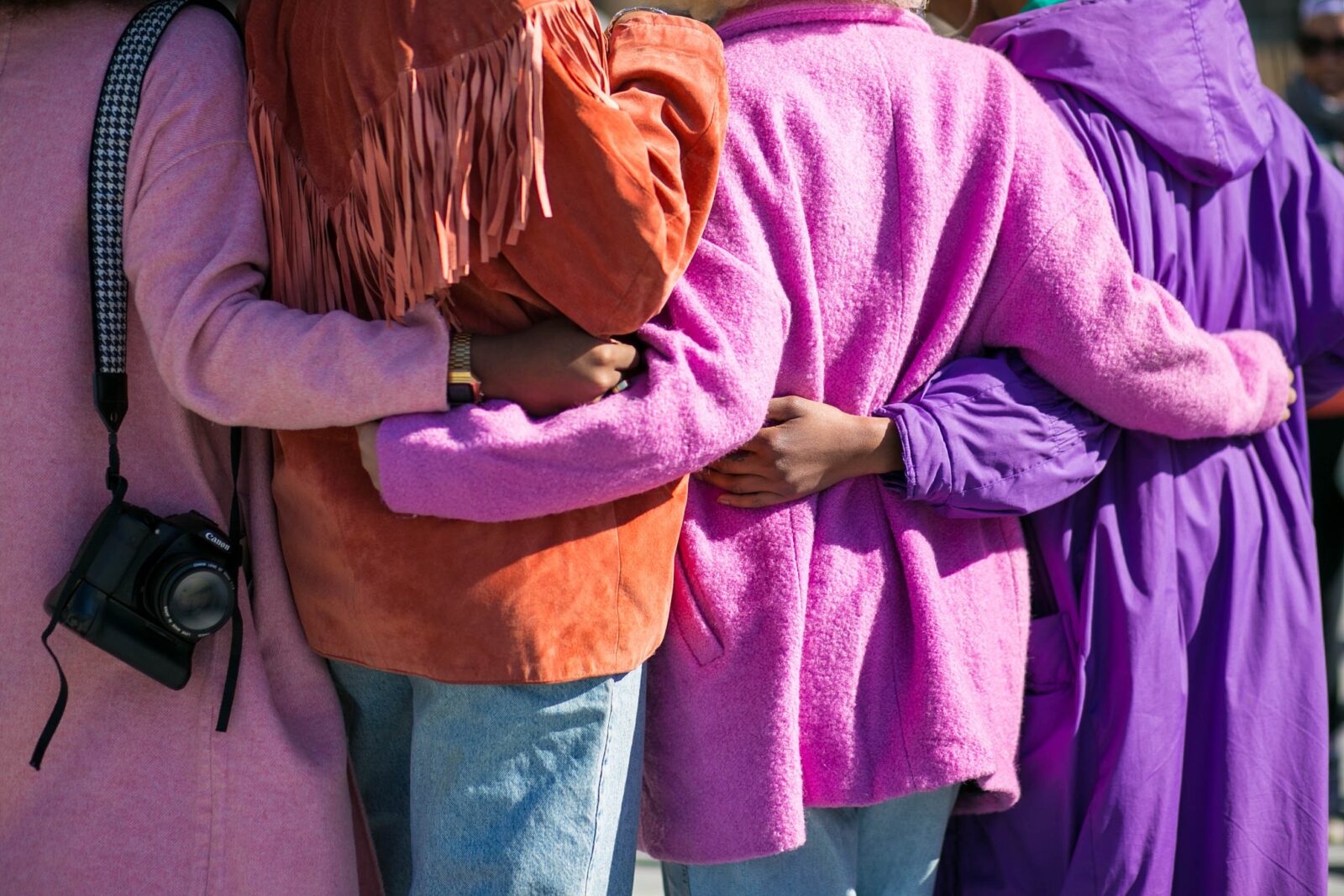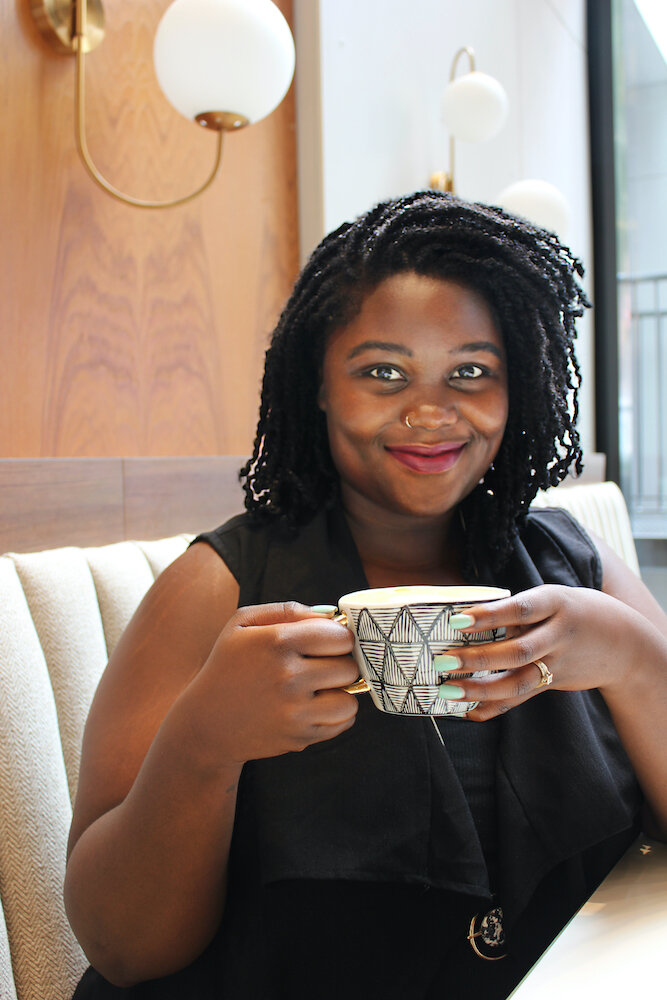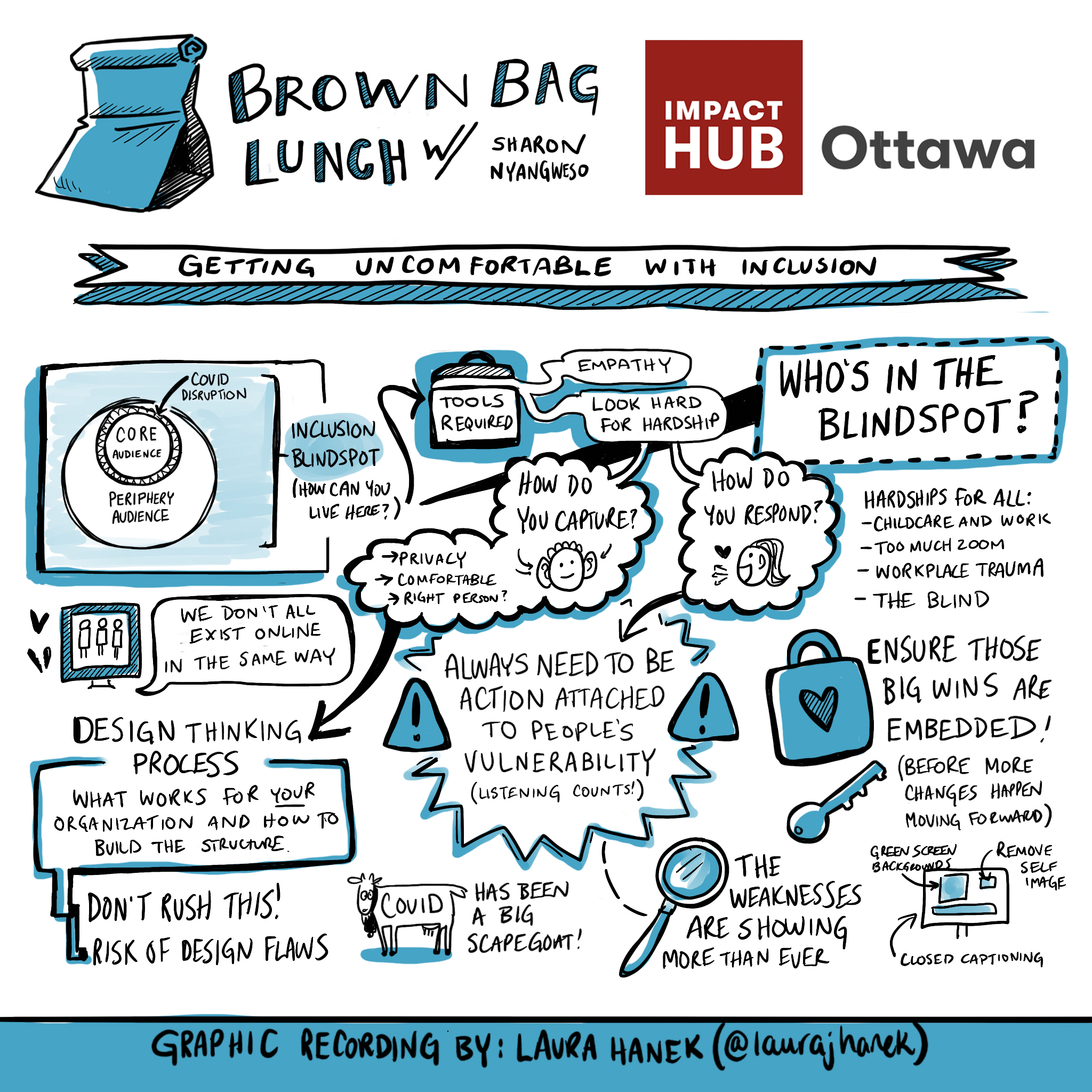
Designing With Everyone In Mind – With Sharon Nyangweso
Sharon Nyangweso is a trailblazer. As a proud immigrant who arrived alone in Canada at the age of 19, her journey to becoming the founder and CEO of QuakeLab, a full-stack diversity and communications agency based in Ottawa, is non-traditional. Offering powerful stories and evidence-based advice, she emphasizes the importance of living with purpose and taking practical steps to address the issues you see around you.
In this first edition of Community Stories, I sat down with Sharon to talk about her life, work, and advice for Hubbers who seek to build more robust diversity, equity, and inclusion strategies.
Finding Community
Arriving in Ottawa with the ambition of being the first in her family to graduate from university, Sharon’s early years in the city were filled with pressure. Living on her own for the first time and in a foreign country, her top priorities were achieving good grades and finding immediate financial stability, which drew much of her spare time. This was compounded by the constant stress of having to figure out immigration matters on her own, as Sharon joked, “I have become excellent in paperwork because of that period in my life.”
Yet, this reality hampered the sense of community that she could create, “I felt that sense of regret. I should have invested in building a community, I should have invested in building a network, but I also didn’t think I had that time and energy to invest.”

Realizing it’s never too late to engage in network and community-building, Sharon started to volunteer as much as she could on top of her post-university work, coming to understand the power of learning on the fly and saying yes to new opportunities, even when it required hours online trying to learn new skills.
This period of exploration led to an opportunity to work in a non-profit she believed in, focusing on digital communications support with initiatives based in Africa. Finally involved in meaningful work, Sharon found community in her workplace and a mentor who emphasized intentionality in how to approach and solve challenges both at work and in life.
Engaged in the digital communications field, specifically working with women and girls in sub-Saharan Africa, Sharon began to incorporate design thinking into her work, recognizing, for example, that 17-year-olds in Canada were using the internet very differently to 17-year-olds in Africa. This provided early insight on how building structures with the beneficiary community in mind was critical to a project’s success.
“This informed a lot of my thinking of what would become QuakeLab. That idea that if you are not specific about what you are trying to solve, if you are not taking the time to learn as much about the challenge, if you are creating in service of a specific group of people and not collaborating with them to create, you are essentially throwing spaghetti at a wall and hoping it will stick.”
A practical approach to diversity, equity & inclusion
For Sharon, one of the keys to her success has been being straightforward and practical in her responses to challenges. She recalls often being frustrated that when the topic of inclusion came up, the focus was more about “how do you feel rather than what are the practical actual things that need to happen” at a personal and organizational level. This is how she approached building QuakeLab, an organization that provides the tools, expertise, and methods to take visions for inclusion from idea to action.
If you approach diversity, equity, and inclusion (DEI) work in a way that goes beyond just listening and learning, but instead “take the responsibility to make actionable systematic changes into the structure of your organization,” you can create an environment where people are not facing the type of discrimination or oppression that so many have sadly become accustomed to.
Having worked as part of a bigger organization, in a consultancy, and now as a business owner, Sharon has an abundance of great advice for people looking to better develop their DEI strategies:
- A clear starting point is that we all need to come to terms with the fact that we will do or say the wrong thing at some point. We may be called out for it or perhaps even called in, but once you get through that hurdle of fear and accept it will happen, it releases a lot of tension and opens avenues to do the right thing. Recalling a quote by Brené Brown, Sharon shares that “the ability to opt-out of something because you are afraid of the outcome… is the epitome of privilege because the people on the other side of that cannot opt-out… it’s their life.”
- On a more practical level, people should move away from what they have traditionally seen as DEI work, such as taking unconscious bias training or reading books like White Fragility. Instead, focus on building robust structures and organizational practices, like making sure people of color in your organization have access to benefits.
- Another structural example of DEI work is to emphasize exactly how people’s performance at work is measured, so they can aim for upward mobility because “we know that the lack of a clear process [for growth/advancement] is more likely to adversely affect immigrants, women, and people of color because it depends on this unspoken nuanced understanding of what is expected of you which is really built around a white male understanding”.
- Finally, entrepreneurs, contractors, and small business owners should recognize that there is so much flexibility about how they can build equity into their work. Nothing exists in a vacuum, and you can decide to build how you want to build, so make sure that every aspect of your project reflects the community you seek to serve. “That is what it means to build a DEI strategy; it’s being really intentional about centering people in everything you do.”
- If there is one big takeaway from my conversation with Sharon, it is the importance of being intentional and practical in the work you do; starting your projects with the outcome in mind and always thinking of how you can maximize the benefit for those whom you are trying to serve.
One last piece of wisdom:
“When it starts to feel like you are not building for any one specific person, then you are doing some good work. There is this term in the design world, when you design for the most difficult [inclusion challenges], you are designing for everyone; when you design for people with the most need or highest barriers, you are essentially designing for everyone.”
Sharon Nyangweso is the founder and CEO of QuakeLab. She specializes in a radical new approach to diversity and inclusion that is measurable, strategic, and based on a strong foundation of design thinking.
- Sharon is also an Impact Hub Ottawa Coach – if you need help with design thinking for inclusion, equity in action or digital communication, members can reach out to her through the Coaches page.
- QuakeLab is currently accepting registrations for their DIY Inclusion Strategy: 2021 Cohort that will support you to audit the state of DEI & workplace culture, classify stakeholder needs & experiences and develop tactics, evaluation method & budget. Register here.

Graphic Recording of Sharon’s May 2020 Brown Bag Lunch on Getting Uncomfortable with Inclusion.